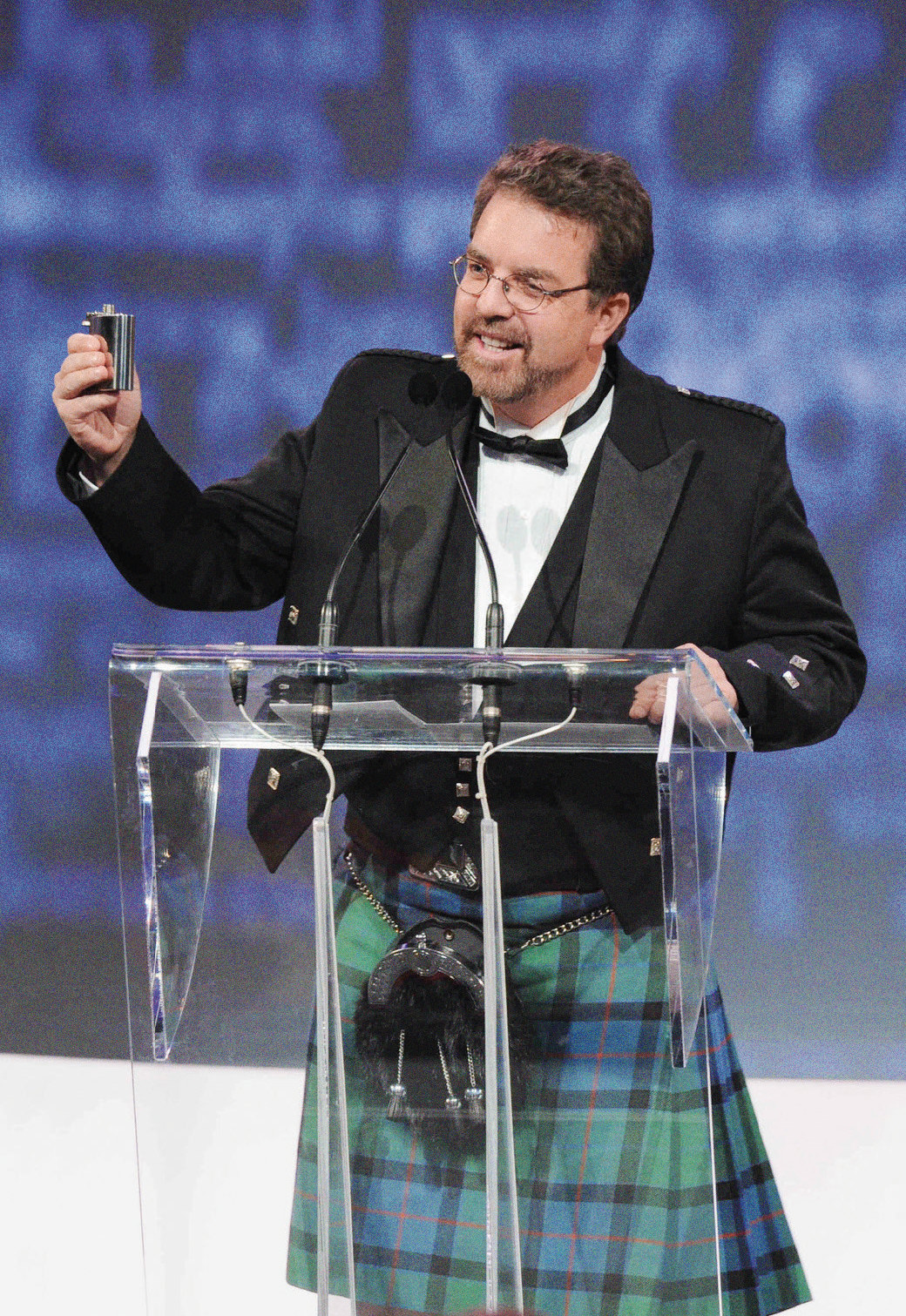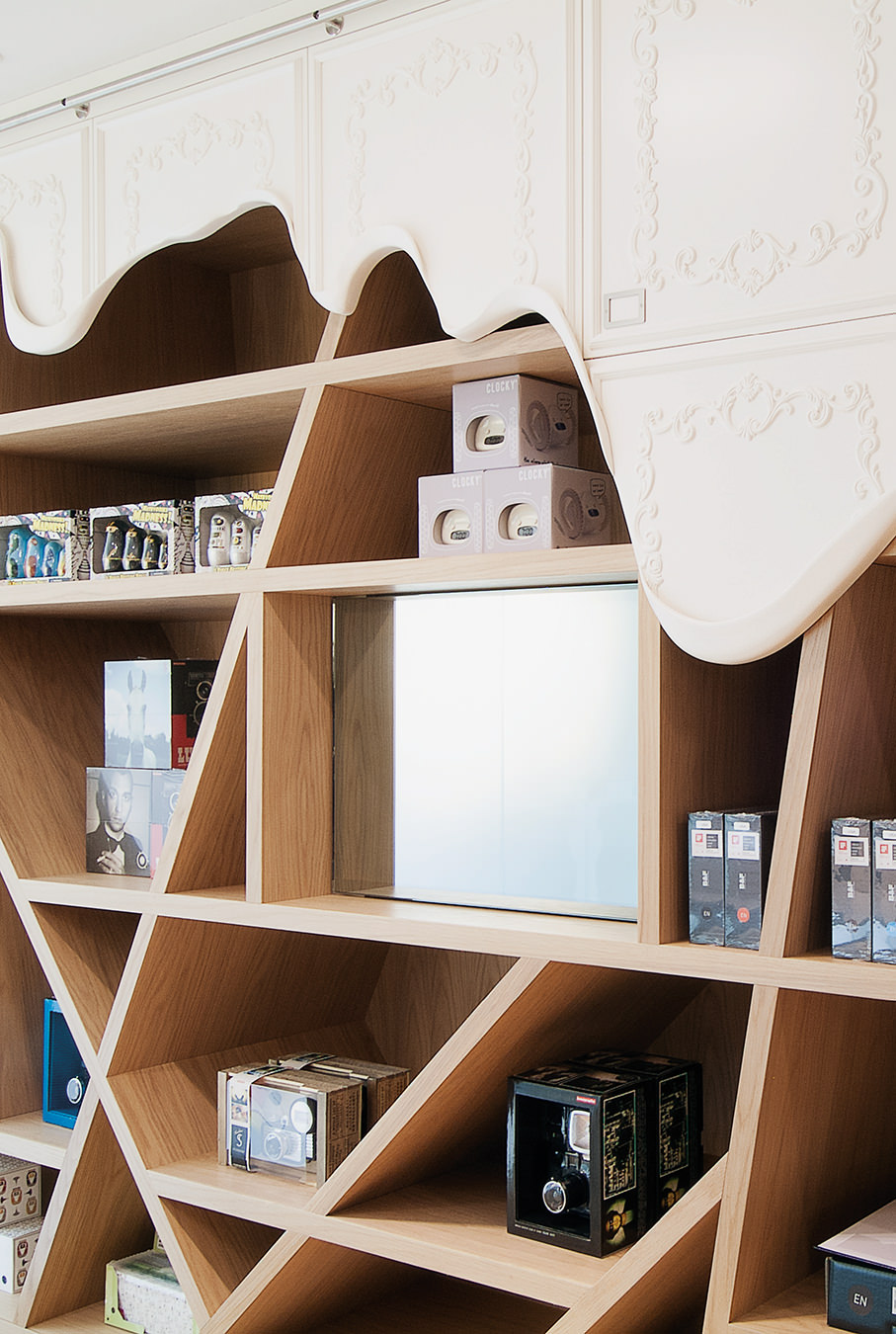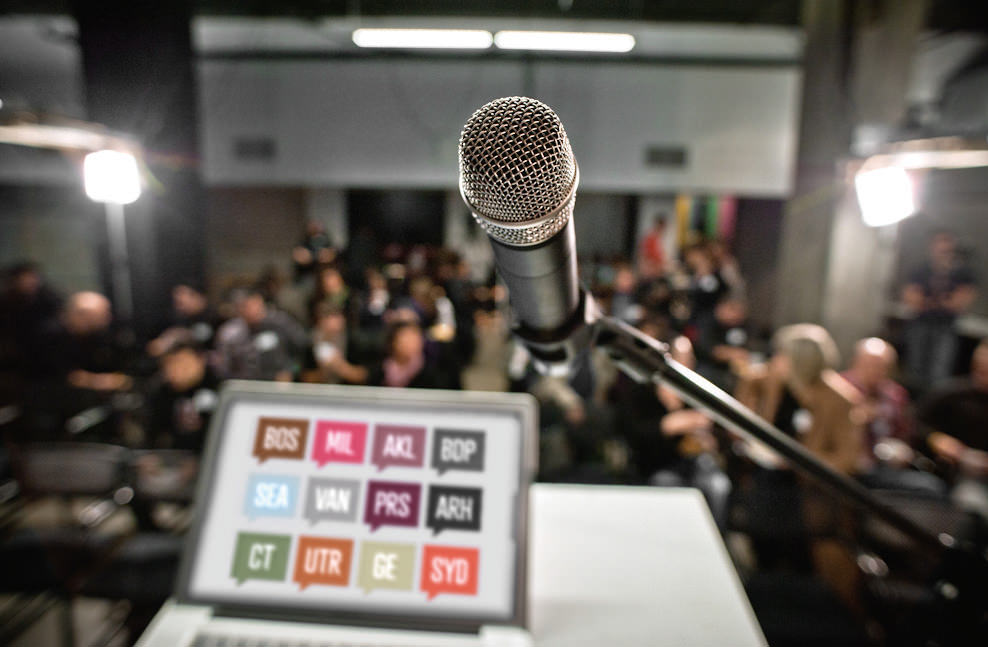A Look Inside Vancouver’s Massy Books
Q&A with bookstore owner Patricia Massy.
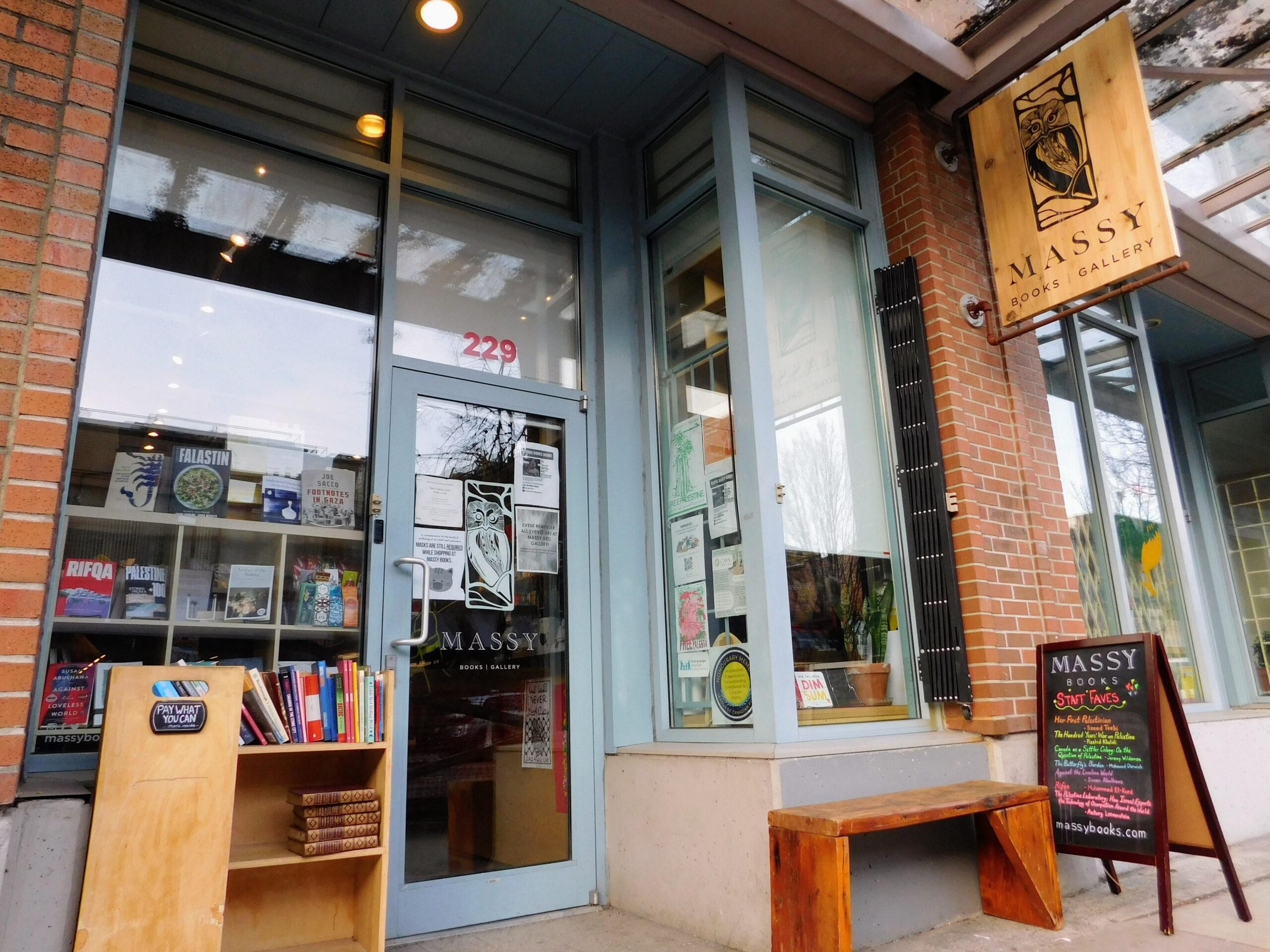
Massy Books has become a popular destination for progressive readers in Vancouver. The independent bookstore relocated from South Main to its current Chinatown location on East Georgia in 2018. It’s easy to spot with its wooden sign featuring a distinctive owl logo, along with a rack of pay-as-you-can books standing outside.
Inside, the diverse collection includes Indigenous novels such as Eden Robinson’s Monkey Beach and Richard Wagamese’s Medicine Walk and Asian American poetry collections from the likes of Monica Sok and Jane Wong. Quirky titles abound, from a collector’s edition of Ursula Le Guin’s 1972 fantasy classic The Farthest Shore to Josie Teed’s acclaimed 2023 memoir British Columbiana: A Millennial in a Gold Rush Town. A “secret door” à la C.S. Lewis’s The Lion, the Witch, and the Wardrobe leads to the children’s section.
Owner Patricia Massy heads a staff of 12 spread between the high-ceilinged yet cozy bookstore and Massy Arts Society on nearby East Pender. These two sister venues host upwards of 140 events a year. Massy, who identifies as having Nêhiyaw-Métis heritage, chatted with NUVO recently.
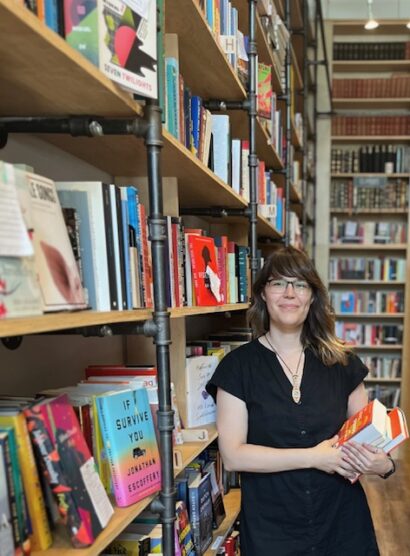
Photo Courtesy of Patricia Massy
What originally inspired you to set up Massy Books?
I originally started selling books online to supplement my income while in university. My inspiration comes from what books have given me in life—the hope they can carry, the wisdom they impart, the entertainment they offer. I love discovering the unexpected, whether it’s paying $15 for a second edition Lord of the Rings trilogy in pristine condition at an estate sale or learning Greek history in a thriller about university students covering up a murder. I love bookselling. It is the only thing I’ve ever found that continuously challenges me in ways I want to be challenged.
Who principally influenced your love of literature?
My father was a huge reader and proud to come from a family of readers. Growing up, his books made up the majority of colour and decor in our living room. As our outdated, framed velvet pictures and handmade macramé lamps expired, his books persisted. When he passed away from cancer in 2019, I acquired some of those same 30-plus-year-old books, now yellow-edged and worn as some of the last remaining artifacts holding my memories of him. I hold a still framed image of him sitting under one of those macramé lamps reading a John Grisham novel, smoking a cigarette.
How would you describe your educational and business background?
I actually don’t have a background in business, except working at a couple of bookstores and a gas station one summer. I have family members who are humorously perplexed by me being an entrepreneur, as no one in my immediate family is in business, let alone good with money. Most of my experience is from the nonprofit sector, working as a support worker, aboriginal outreach worker, and payroll and benefits administrator. But I’ve also done everything from landscaping and cleaning to long-haul moving and travelling with a carnival.
Every position I’ve held equipped me with skills needed to run my own business. In terms of formal education, I acquired a life skills diploma in my early 20s and then a degree in media and communications, which focused more on corporate media criticism than advertising. I then pursued a degree in English, which I’m a handful of courses short of graduating from. After studying for eight years, getting $40,000 into debt, and having more fun selling books, I gave up. I don’t regret a thing.
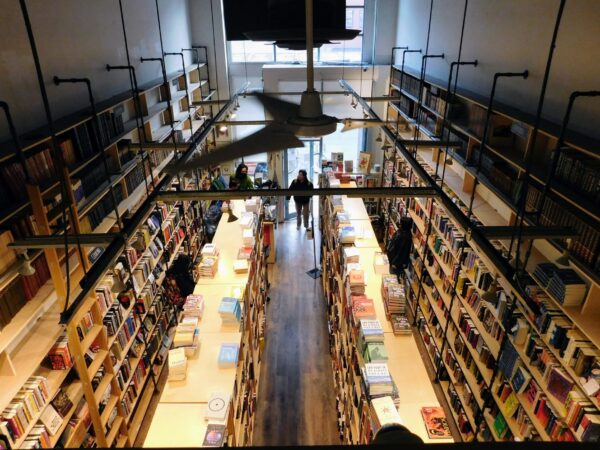
Photo by Lucas Aykroyd
You’re noted for paying your staff a living wage, for being certified for accessibility by the Rick Hansen Foundation, and for being certified as an Ocean Friendly Business by BC Green Business. Why are matters like these important to you?
I’ve never contemplated why they’re important. I only feel a sense of obligation to ensure I leave things in a better place than when I arrived.
We’re also a designated Apartheid-Free Business with the Canadian BDS Coalition. We are committed to actively standing in solidarity with Palestine and demanding an end to the occupation and ongoing genocide.
A certification holds us accountable to the things we’ve promised our staff and our community. It’s a reminder that Massy values its staff, our community, the environment, and accessibility. Of course, adapting and changing is required as we learn and evolve over time.
What makes Massy Books worth visiting?
We’re not just a bookstore. We’re an art gallery, gathering space, and community hub. We host readings, workshops, film nights, and fundraisers. We celebrate overlooked and overexcluded authors and give them priority when displaying and promoting. Our booksellers are genuinely some of Vancouver’s kindest people. They are exceptional readers and thinkers, passionate about the work we do. Massy Books is the store it is because of our staff and the community that shops here.
What good books have you read recently?
Batshit Seven by Shueng-King. An incredibly witty novel that juxtaposes the generic, hypercommodified flavour of Starbucks against the failures of imperialism and the postcolonial condition. Funny, a little crude, and spot on.
The Trinity of Fundamentals by Wisam Rafeedie. A novel about the secret life of a revolutionary, his optimism, and a hope for a better future. I cried when I held this book for the first time. Rafeedie penned this novel while imprisoned. Each page was copied onto 54 capsules, smuggled out by prisoners through six prisons and eventually delivered back to Rafeedie. Its very existence is a testament to the power and steadfastness of resistance against violent oppression and occupation.
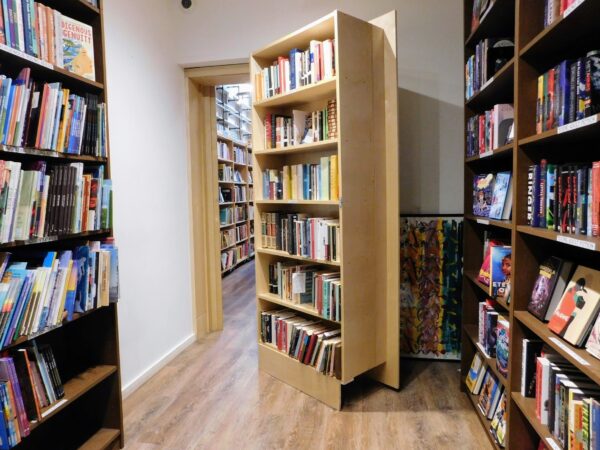
Photo by Lucas Aykroyd
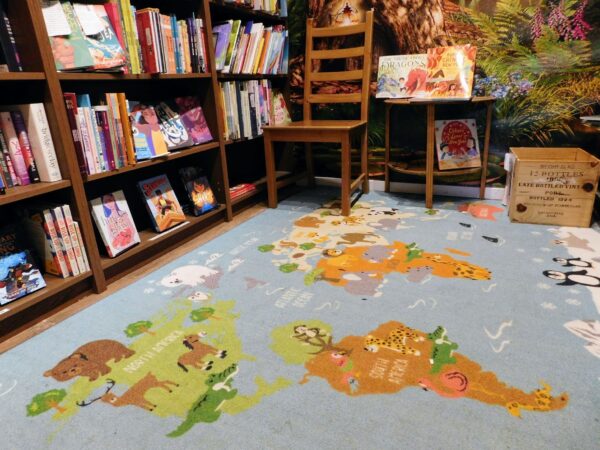
Photo by Lucas Aykroyd
What are some of your best-selling titles?
Our Palestinian titles have sold more than anything else lately. Two of our top sellers are that Rafeedie novel and The Hundred Years’ War on Palestine by Rashid Khalidi. Other titles include Her First Palestinian by Saeed Teebi and Ten Myths About Israel by Ilan Pappe.
What can you say about your special focus on Indigenous works?
You can see the love I have for First Nations, Métis, and Inuit authors in our store. Our staircase contains a four-panelled mural of inspiring Indigenous leaders and thinkers, and half the centre aisle of our store is dedicated to highlighting Indigenous authors.
I’m told there’s a sense of safety customers feel in our shop. When your peoples’ stories are given priority, are celebrated and recommended by staff, there is a sense of belonging and pride that those stories hold tremendous value and power.
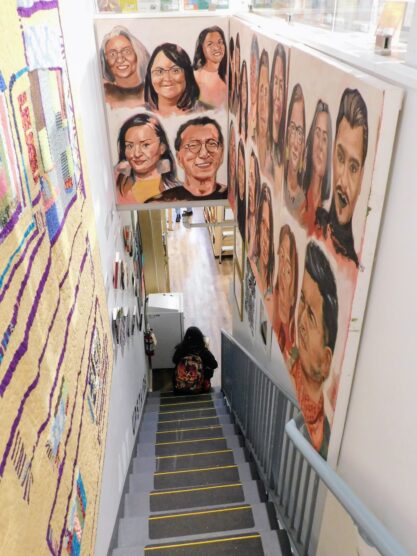
Photo by Lucas Aykroyd
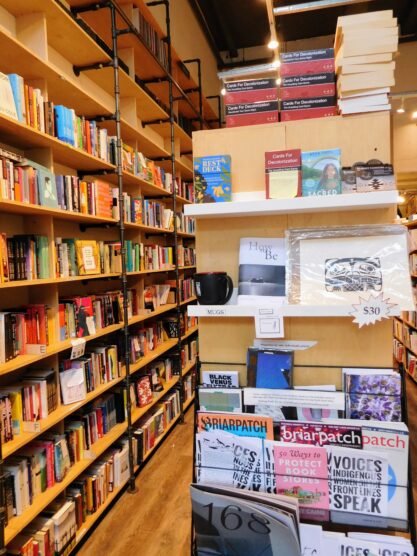
Photo by Lucas Aykroyd
Any big milestones coming up?
Massy Arts Society will be five years old in June 2024. Now located at the old Ming Wo building at 23 East Pender Street, we’ve been able to expand our programming and provide space for overexcluded artists and authors (80 per cent of all our activities), for free or by donation. I’m proud of how far we’ve come. As with any organization, there’s still room to grow and evolve in ways to home in on the type of programming we do and work to improve our collective work and relationships with the community.
Which other Metro Vancouver bookstores do you admire?
I’m a fan of Wildfires Bookshop and Spartacus Books. Both are unwavering in their support and advocacy towards justice and liberation in this world. We also worked with Iron Dog Books last year on a 16,000-plus book order to supply all Vancouver schools with Indigenous material for the new B.C. Indigenous-focused graduation requirement.
What else should readers know?
When you shop at Massy Books, you don’t only support an Nêhiyaw-Métis woman-owned shop. You also support our staff’s living wage, our nonprofit and its programming, and all the organizations, charities, and people we continuously donate to.
This interview has been edited for length and clarity.

